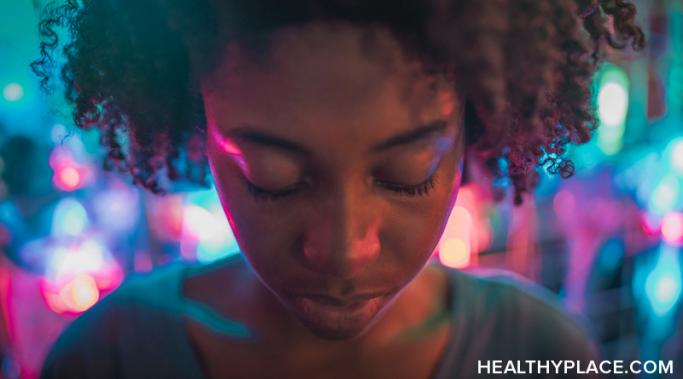Self-harm is not avant-garde. Depression is not mysterious. I know these two statements to be facts, so why do some forms of media want us to believe otherwise? On the one hand, maybe I should be grateful. Maybe I should be grateful that topics such as suicide are even portrayed on television or in movies. Why, then, is the predominant emotion not gratitude but sheer anger? (Note: This post contains a trigger warning.)
Suicide Stigma
Death is hard for many people to understand, and feelings about it can be extremely challenging to put into words. When it comes to death by suicide, the challenge seems to become even greater. Think of all the ways you’ve heard suicide spoken about; unfortunately, a lot of it results in stigma and ignoring pain. (Note: This post contains a content warning.)
I'll start off by saying that I don't believe suicide is a selfish act. This opinion comes from living with suicidal ideation since before I even knew there was a term for it. For the sake of this blog post, however, I want to explore the opposite. Is suicide selfish? So what if it is? (Note: This post contains a content warning.)
No matter how many conversations are had or how many awareness efforts take place when it comes to suicide prevention, it seems society doesn't know how to make a positive difference. I get it. Death is a hard thing for people in general, and suicide grates harder against that. I'm here to share some dos and don'ts for suicide prevention that can help. (Note: This post has a content warning.)
What is it really like to live with suicidal ideation? Suicide is still heavily stigmatized, with accusations of selfishness being one of the most prominent pieces of stigma used against it. Would knowing about suicidal ideation help reduce the stigma that's so quickly thrown at those who struggle with thoughts of dying by suicide? I believe understanding its impact can shed light beyond the misinformation that fuels suicide's stigma. (Note: This post contains a trigger warning.)
The stigma related to suicide is often thought of as a uniform idea, but it's important to think about the different ways it manifests so we can better understand how to approach it. Does it look different for men and women, for instance? And if so, how? (Note: This post contains a trigger warning.)
When it comes to the stigma associated with suicide, you may think of the shaming. But on the other end of the spectrum, there's romanticizing suicide. Although it may seem harmless, romanticizing suicide can be just as damaging as shaming it, and we need it to stop.
People underestimate how powerful compassion is for getting through tough times. Sure, facing hard realities is a necessary part of recovery and tough love can be beneficial. But, ultimately, I believe it's the power of compassion that'll help us through the hardest moments and that it's the most beneficial to those with mental illness and their loved ones.
If I were to ask you to picture someone who is experiencing suicidal thoughts, what would you imagine? My guess is someone wearing dark clothes with a haggard expression and overall looking like he or she are down on his or her luck. The image of someone who seems to have it all together might not come to mind at all. But, like mental illness, suicidal thoughts aren't reserved only for those whose circumstances "warrant" it. Suicidal ideation can and does affect anyone at any time, even when life is otherwise good.









